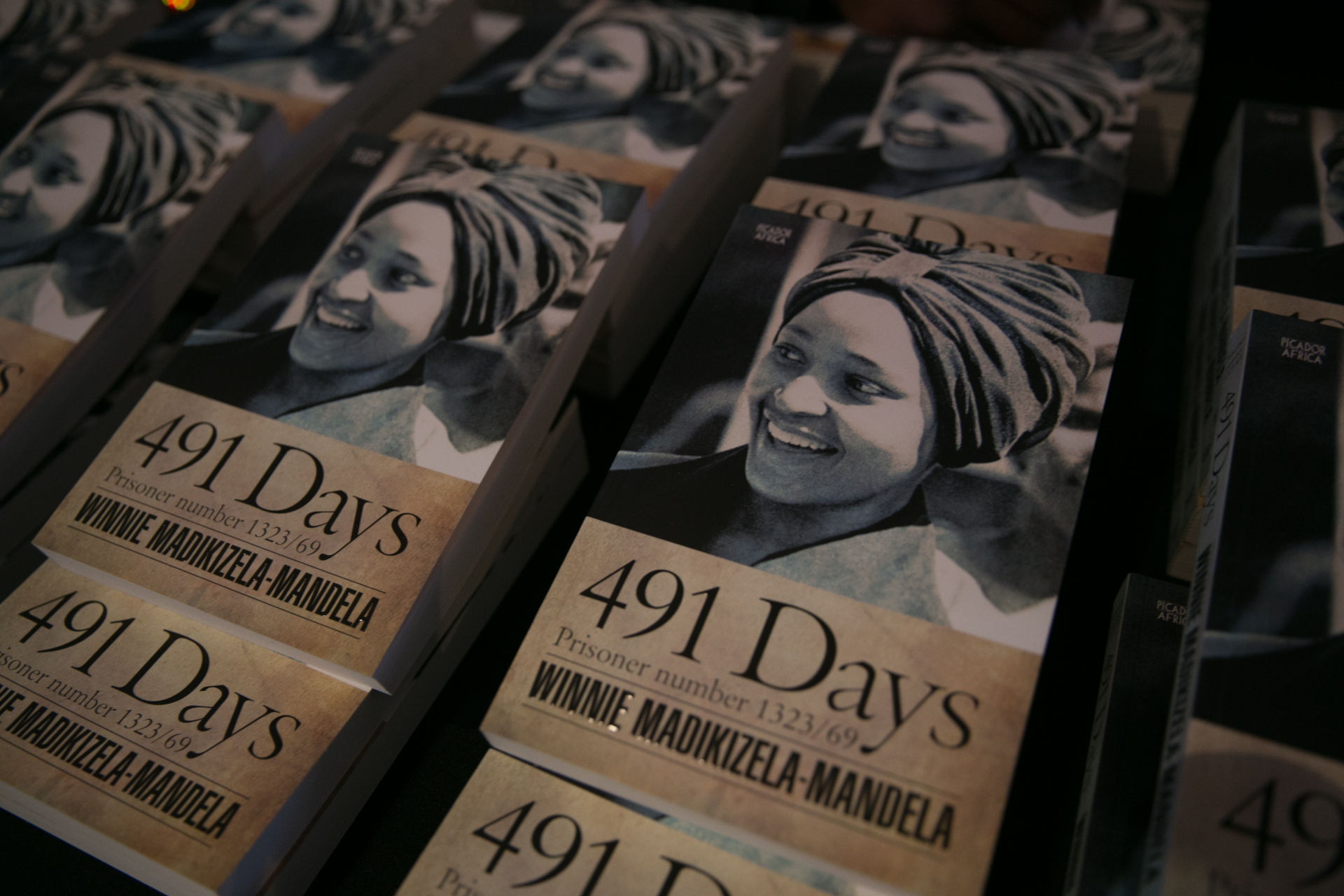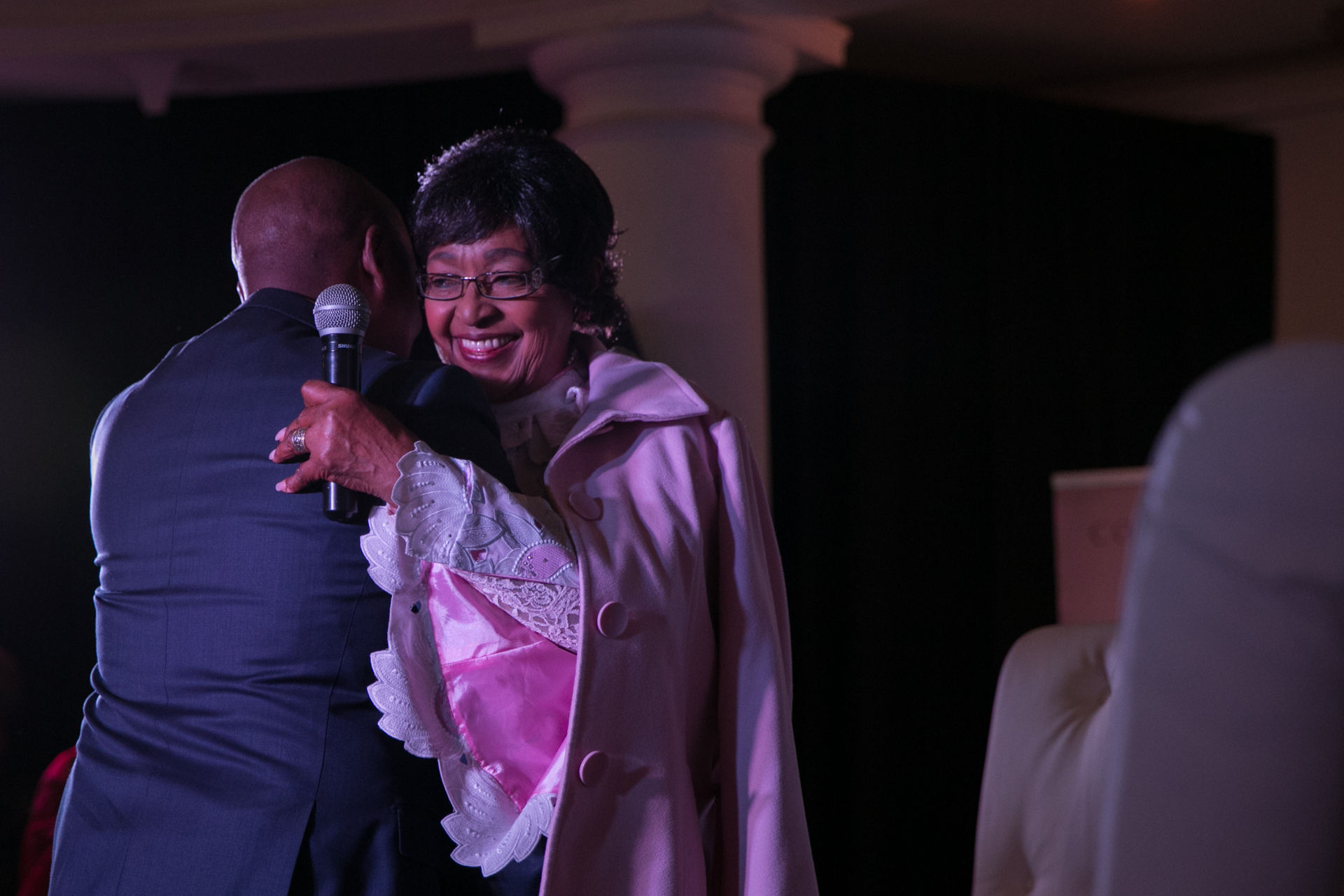Sheryl Cwele has not yet reported to a correctional services facility after her appeal against her conviction failed.
Madikizela-Mandela said she feels naïve for sacrificing her life for South Africa.
"We have made tremendous strides, but our people are back on streets demonstrating against the democratically elected government," she said. "Nelson and I chose the country over raising our children and in our old age, we got to witness Marikana – the very thing we fought against."
Still strikingly beautiful, Madikizela-Mandela nevertheless looked frail at 77. She was speaking at an intimate book launch ahead of Women's Day in South Africa, in conversation with journalist Victor Dlamini at the Constitutional Hill, where she was imprisoned several times.
She admitted that she has always been terrified of South Africa slipping back into the state it was in during the apartheid regime.
Her new book is called 491 Days, Prisoner number 1323/69: a diary she wrote while in solitary confinement in 1969 charged under the Terrorism Act.
 She recalls having panic attacks worrying about her two daughters, Zenani (10) and Zinzi (9). But she survived the anguish because she believed that the freedom of black South Africans surpassed the need for a normal family life in an abnormal society.
She recalls having panic attacks worrying about her two daughters, Zenani (10) and Zinzi (9). But she survived the anguish because she believed that the freedom of black South Africans surpassed the need for a normal family life in an abnormal society.
"I feel so naïve for sacrificing my life for this country," she said.She spoke with great vulnerability when she recalled how she and Nelson Mandela were not able to instill proper values and principles in their children because their lives were spent in incarnation. "How do you teach your children anything if your form of communication is through prison bars and letters the authorities may choose to pass on or not?"
She was reluctant to publish the manuscripts, which had been returned to her after 41 years from her late lawyer, David Soggot, who represented her during her jail time. The first time she laid her eyes on the copy; she knew it would bring back a lot of pain.
Speaking at the launch, former Minister of Public Enterprises Barbara Hogan, also a former prisoner said Madikizela-Mandela's book is no ordinary book of prison experience. "This is the raw heart of the lonely experience of a mother who did not know if she would ever see her children again. To share the anguish takes an enormous amount of strength."
Even so, Madikizela-Mandela said, "There is no amount of eloquence that can properly translate my feelings during detainment, and the way I feel about South Africa now. But I decided to tell this story, my story, for future generations, hoping that the dark period we lived in never happens again."
Madikizela-Mandela said it was exceptionally difficult to read notes she had written about how she would make believe that Zinzi and Zenani were with her in her cell and how she would talk to them, tell them everything she had wanted them to know. "At night I was haunted by their screams each time I got arrested… how do you read that 41 years later?
Moving On
 Her interviewer Dlamini spoke about how often critics and analysts claim that South Africans dwell too much in the dark history of apartheid, which blinds them to the opportunities of the present and the future. Madikizela-Mandela's response was that this was an inappropriate expectation.
Her interviewer Dlamini spoke about how often critics and analysts claim that South Africans dwell too much in the dark history of apartheid, which blinds them to the opportunities of the present and the future. Madikizela-Mandela's response was that this was an inappropriate expectation.
"You cannot just shut down the past; in fact you should not [do so] at all, especially ours. We had the facade that was the Truth and Reconciliation Commission whose purpose is still questionable. An attempt to help us move on, did it?" she said.
For her, the commission only served to give clarity and information to those who needed it. But for some, like her, it was a re-trial with no truth. "Nobody there asked about my children, who raised them while their parents were detained. How come there was no one there to apologise and explain to me?"
Madikizela-Mandela spoke frankly of her resentment at being forced by a social system to make decisions that she would later get no rewards for. She recalls the difficulty she had in explaining her and Nelson's constant jail stays to her children, without creating the perception that the world was a big, dark place.
"At the age of six Zinzi called me a liar because of the stories I used to make up. It was difficult to make children understand life then because values were distorted. I am lucky that they turned out fine."
She ended her conversation with a reminder to SA's current youth that the country was liberated by youth and it was time for the current generation to do the same.
The launch was attended by most of the Madikizela-Mandela children and grandchildren, as well as Samson Ndou, Bridgette and Jeff Radebe, Hogan, Ahmed Kathrada and Madikizela-Mandela's long-time friend Luigi D'Ovidio.